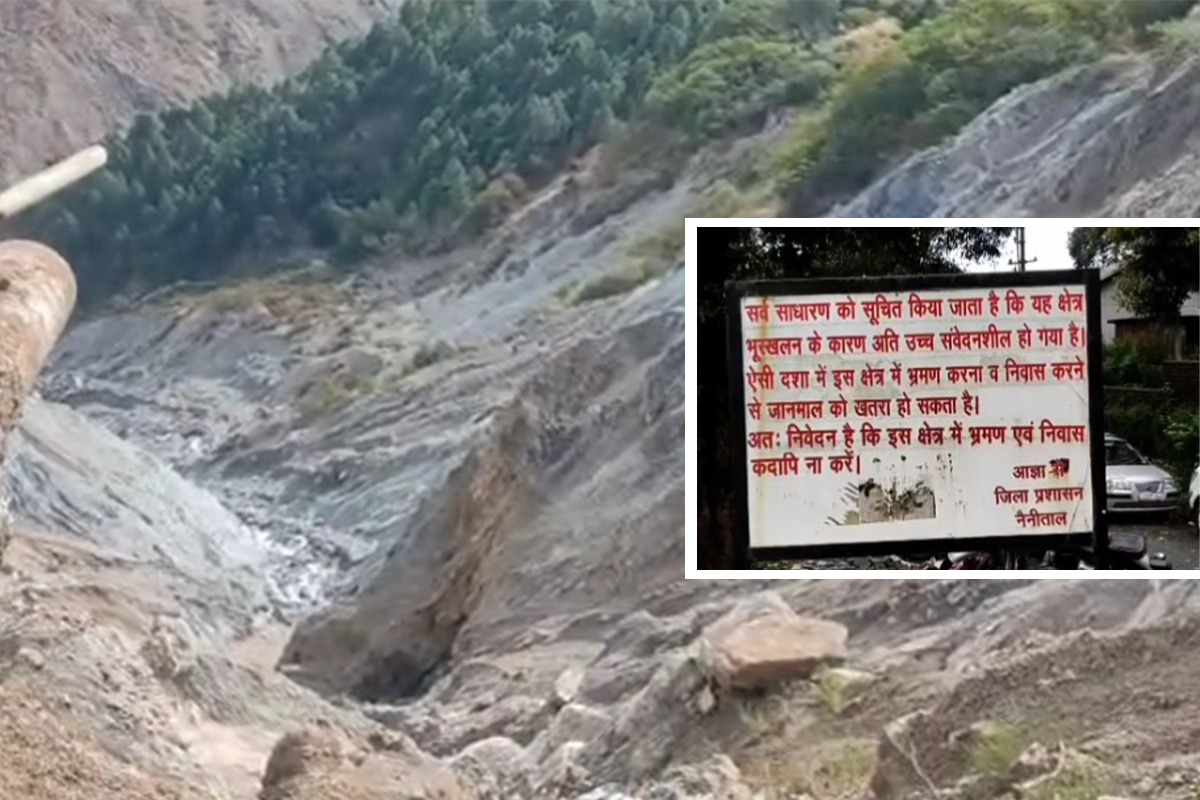The ongoing crisis in Joshimath has brought the focus on the climate crisis ailing several Himalayan towns and villages in Uttarakhand. While environmentalists say that this Chamoli town is damaged beyond repair, some other towns can be saved from nature’s fury by timely interventions.
One such town is Nainital, a famous hill resort town situated at an elevation of roughly 2,000 metres in the Kumaon region. Resting in its lap are Naini Lake, the governor’s house, and the Uttarakhand high court besides many hotels, resorts and hundreds of homes.
Hills surrounding the Nainital valley are made of “poor to fair rock class”, due to which the town has witnessed several landslides over the years. During British rule in 1880, nearly 150 people died in a major landslide in Nainital.
“After that landslide, the British rulers introduced some measures that helped the town avert any tragedy for a long time, but the town is facing an existential threat due to shift in rock plates, soil erosion, and landslides,” said geologist BK Kotalia.
Several surveys have confirmed that Naini Lake, situated in the heart of the town, has developed at least two faults, raising concerns about its existence and a possible calamity. “Naini Lake is the soul of Nainital. The town will not survive if the lake breaks,” said a local.
The existence of Balia Nalla, which works as the outlet of Naini Lake, is under threat. Rocks forming a clearly defined path of the nalla are gradually eroding, leading to landslides and hindering the flow of water.
According to a study published in the Journal of Rock Mechanics and Geotechnical Engineering, erosion in Balia Nalla increases during the rainy season. Every year, the government deploys rescuers and personnel of disaster management and emergency services during Monsoon to deal with any disaster that could result due to landslides.
Due to rapid land erosion, the government has declared Hari Nagar neighbourhood in Nainital as unsafe for human habitat.
“During rains, hundreds of residents are shifted to other safe areas in the town during rains every year. The affluent ones have already bought houses in other places, but a majority of colony residents are poor; and since they can’t afford to pay rent or buy a new house, they return to their homes after rains,” said a woman in Hari Nagar.
Several areas of Nainital like Malliktal and the famous shopping stretch of Mall Road have developed major cracks at various places. In 2018, around 25 metres of Mall Road collapsed into Naini Lake.
Scientists of the Geological Survey of India and Wadia Institute of Himalayan Geology have submitted some recommendations to the state government, but residents alleged that any major step to address the situation is yet to be taken.
“The government has not taken any step. During rain, no one cares about us. Every big leader has visited and inspected the situation. If not addressed in time, the town is witness a situation similar to Joshimath. The government should initiate proper action to save Nainital and shift affected families to other safer places nearby,” demanded a woman.
The government has sanctioned ₹200 crores for carrying out necessary works to stop landslides.
“A high-powered committee has already approved the treatment of Balia Nalla. Fund will be made available and work will start soon,” said Nainital district magistrate Dheeraj Gabyal.
Speaking to reporters, Union minister and senior state BJP leader Ajay Bhatt said, “Cracks have been seen at many places in Nainital, Karnprayag, Mussoorie, and Uttarkashi. We know that disasters are in our destiny because frail rocks form this part of the Himalayas. Nonetheless, our government is fully prepared before, during and after any disaster. Army, ITBP, and IAS officers are camping there.”









